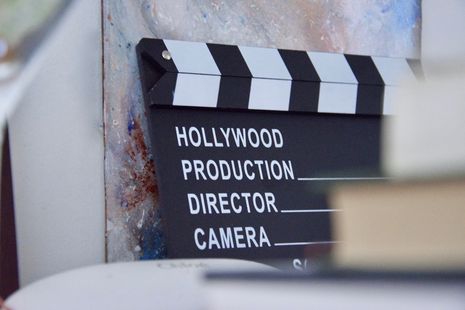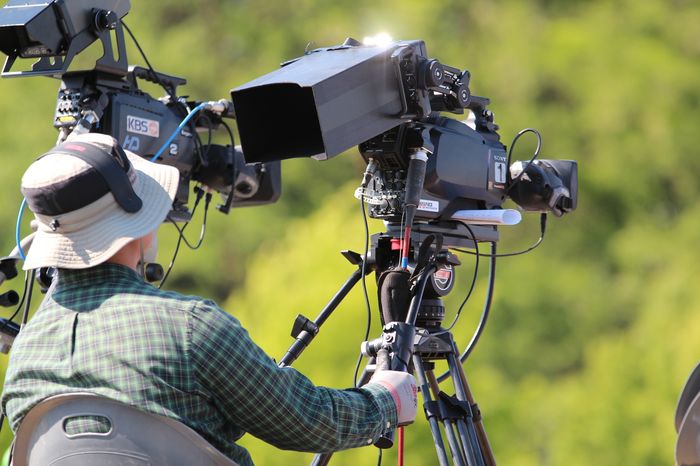Why I never want to see Brad Pitt in a movie again
Getting bored of seeing Timothée Chalamet in every film ever? Fed up of Hugh Grant’s bumbling ums and ahs? Tired of Tom Cruise hogging the screen? Imogen Barnes vents about how an actor’s fame can ruin the fictional world of a film

I never want to see Brad Pitt in a movie again.
Harsh, maybe, but true. Of course, there’s the recent abuse allegations. Or the fact that, by all accounts, Brad’s just not that great an actor. These are all valid criticisms, but I can’t pretend they’re mine. My pronouncement is a more obscure, perhaps over-exacting, one: for me, Brad — like many of his A-list peers — is just too recognisable.
Recognisability is the perennial plight of the successful leading actor. After years daydreaming, they land their big break and waste no time settling into the plush throne of Hollywood royalty, resting on shiny, plasticised laurels that preserve their legacy with as much waxy artifice as their hence obligatory Madame Tussauds sculpture. For this particular breed of thesp, roles soon become frequent but homogenous, and their image becomes a brand.
“Not believing it’s Hugh Grant is the most basic requirement considering Hugh Grant is being paid to make us believe he’s not Hugh Grant”
It’s in this manner that Hollywood has structured and maintained its star factory for decades: before Pitt, it was Redford; before Redford, Bogart. What better way to stabilise an innately volatile industry, than making it dependent on a select few: what some might call an acting nobility?
But while these brands are vital to the film industry, they often threaten to collapse the world of a film itself. Being so iconic and recognisable can make an actor’s career but spoil their performances; their likeness unwittingly diluting the believability of their respective roles. Their fame is death to fiction. I have invariably found Brad Pitt, like Keanu Reeves, Tom Cruise or [insert other ‘charismatic’ leading actor here], to be lurking somewhere within his performance of any given character, floating just behind a shoddily constructed veneer.
Somehow, we feed on this recognisability. I came across a review of Guy Ritchie’s 2019 flick The Gentlemen, in the New York Post. “You won’t believe that’s Hugh Grant”, its title goads. Forgive me, but is that not quite literally the point? We’re not meant to believe it’s Hugh Grant. Not believing it’s Hugh Grant is the most basic requirement considering Hugh Grant is being paid to make us believe he’s not Hugh Grant.
“While these brands are vital to the film industry, they often threaten to collapse the world of a film itself”
Grant has long been considered an actor famous for playing himself, carted out for every 90s/2000s romcom under the sun to ‘um’ and ‘ah’ opposite a Hollywood starlet. And it’s because of this, not in spite of it, that some of his better work in more recent years has earned him such emphatic praise. He is held to a different standard, judged not on his rendering of a given character, but rather on how his performances conform to or differ from public consensus on who Hugh Grant is. When the notoriously posh and bumbling Grant assumes a heavy cockney accent, we coo in admiration. Needless to say, if a newer, or lesser known actor were to serve up a similar performance, we wouldn’t be falling at their feet. It would be the least of our expectations met.
So, what’s happening in the casting room? There are some actors who seem to lead every new blockbuster. This year’s Dune sequel is set to star Timothée Chalamet, Zendaya, Florence Pugh and Austin Butler: four of young Hollywood’s heaviest hitters. When a film fronts such a veritable supernova of star power, we’re left questioning just how wide the net was cast. The billing reads more like a list of TikTok’s top-trending actors than the meticulous eye of a top casting director. Is it really a coincidence that the four ‘perfect’ actors for these roles also happen to be the ‘perfect’ actors for what feels like every other film being released these days?
A strong case can be made for the casting of unknowns. Take Chloé Zhao, a director who has historically cast across the whole familiarity spectrum. Zhao’s early films, like The Rider and Songs My Brothers Taught Me, featured complete unknowns, many of whose real lives mirrored those of their characters. The results, while under the Hollywood radar, were nevertheless triumphs of undiluted authenticity and raw emotion — and without a movie star in sight.
So, what is your average actor to do? After all, you’re only unknown until you’re not. And if that were an actor’s primary draw, then they’d have a viciously short shelf life.
Being unrecognisable is not about being new on the scene: it’s about appearing new on the screen. Cate Blanchett, as made blindingly obvious in her recent turn as fictional conductor Lydia Tár, is a master of this. Blanchett is one of the most well-known and well-liked actors of her generation. We know that we are watching Blanchett, but we don’t feel as though we are. Blanchett, like all truly great actors from Mark Rylance to Meryl Streep, is capable of effacing her ego. Her performances don’t feel like performances. When Cate Blanchett acts, Cate Blanchett disappears.
So, recognisability is not some un-outable black spot. Its danger is to our appraisal. An actor is not good simply because their portrayal deviates from an audience’s entrenched expectations, à la Grant. Nor is an actor good if their character is nothing more than a formless vessel for their own ‘charisma’. Hollywood will continue to cast its stars — probably a necessary evil of the system — but their recognisability must be acknowledged.
It’s for this reason I don’t want to see Brad Pitt in another movie. I don’t want to see Pitt in the same way way that I don’t want to see Blanchett. For it is their characters, not them, that must be seen; the acting and not the actor. As an audience, we must trust that — for all the deafening noise of brands and stardom — when the clapperboard sounds, the truth will out.
 News / University Council rescinds University Centre membership20 February 2026
News / University Council rescinds University Centre membership20 February 2026 News / Hundreds of Cambridge academics demand vote on fate of vet course20 February 2026
News / Hundreds of Cambridge academics demand vote on fate of vet course20 February 2026 News / Judge Business School advisor resigns over Epstein and Andrew links18 February 2026
News / Judge Business School advisor resigns over Epstein and Andrew links18 February 2026 News / Caius students fail to pass Pride flag proposal20 February 2026
News / Caius students fail to pass Pride flag proposal20 February 2026 News / Union cancels event with Sri Lankan politician after Tamil societies express ‘profound outrage’20 February 2026
News / Union cancels event with Sri Lankan politician after Tamil societies express ‘profound outrage’20 February 2026










